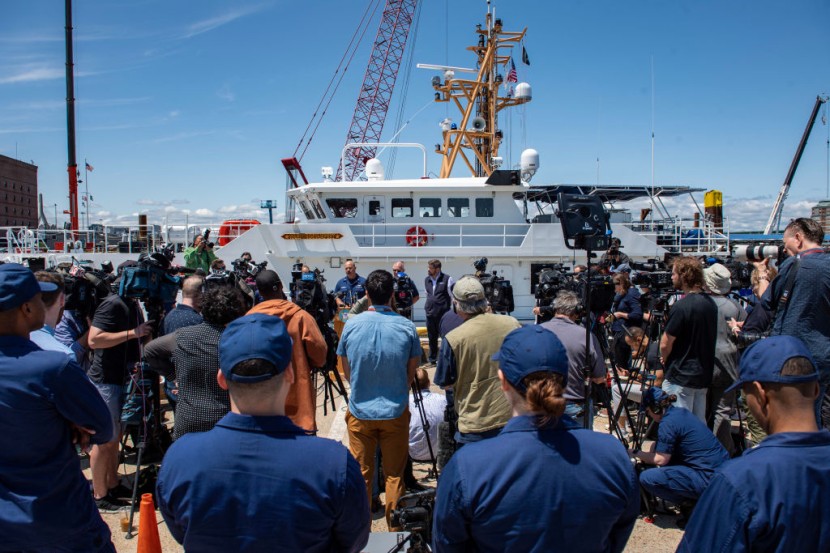
Search teams in the North Atlantic Ocean are rushing to deploy cutting-edge technology to find and rescue the five persons aboard a Titanic tourist submersible that recently disappeared while diving to the ocean bottom.
Titan, the submersible that's owned and operated by OceanGate Expeditions, sets out on its expeditions to the Titanic wreckage with enough oxygen to keep the passengers alive for about 96 hours. This fact makes Thursday morning, June 22, an important time to make progress in the search for the ship and the crew.
The Search Effort Is Escalating
In a report by CNN, the US Coast Guard's Northeast District tweeted early Thursday that a remotely operated vehicle (ROV) had been sent to search for the submersible on the ocean bottom.
Representatives from the Explorers Club have indicated that another ROV called the Magellan is on its way to the location to help. The Magellan can connect lifting cables to Titan and has already made a digital image of the Titanic debris.
Captain Jamie Frederick, the response coordinator for the First Coast Guard District, said earlier that planes are searching an area twice the size of Connecticut and as deep as 2 1/2 miles. He further said that medical professionals with "deep sea medical expertise" and a hyperbaric chamber were there to assist.
The Canadian vessel Horizon Arctic has deployed an ROV that has reached the sea floor and began its search for the missing sub. #Titanic
— USCGNortheast (@USCGNortheast) June 22, 2023
Also Read: [TIMELINE] Updates on the Disappearance of the Titanic Tourist Submersible
Keeping Optimism Amid Dire Circumstances
The search crews have not given up hope despite the worsening circumstances.
Although the source remained unclear, rescuers heard banging sounds on Wednesday, June 21, while searching a vast underwater region.
Officials have indicated that the 21-foot submersible has primitive controls and not much room for passengers to stretch out. The crew also has very limited rations of food and water.
"We continue to find in particularly complex cases that peoples' will to live really needs to be accounted for ... and so we're continuing to search and proceed with rescue efforts by bringing this new capability online this morning," Rear Admiral John Mauger of the US Coast Guard said on Thursday.
David Gallo, an oceanographer and water search specialist, told CNN on Wednesday, "We need a miracle."
High-End Adventure Travel Market on the Rise
An archived version of OceanGate Expeditions' website reveals that the Titan, under its operator's control, lost touch with its mother ship 1 hour and 45 minutes into a dive to survey the Titanic ruins at 13,000 feet below sea level.
The OceanGate CEO, three wealthy adventurers, and a French deep-sea diver are the five passengers.
More than a century after the Titanic struck an iceberg and perished on its first voyage, killing more than 1,500 people, there is still curiosity about the ship. The trip is a part of the expanding market for high-end adventure travel, similar to Blue Origin's space flights and the popularity of organized hikes up Mount Everest.
Concerns about OceanGate's mindset to safety, voiced by both personnel and industry experts, have been reignited as a result of the current events.








